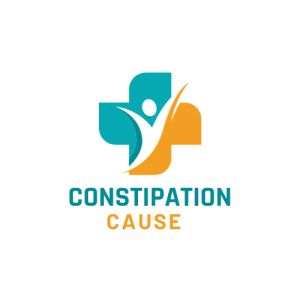Have you ever wondered which mineral quietly works behind the scenes in your body’s blockbuster production? Well, it’s the iron!
Now, as we shine a spotlight on iron’s vital role, a subplot emerges – an everyday concern that often steals the scene: constipation.
In this article, we will discuss how does iron cause constipation and offer tips on how to manage iron-induced constipation.
So, let’s get started!
Iron and its Role in the Body:
The role of iron in the body is crucial for maintaining overall health.
Here are some key functions of iron:
1. Oxygen Transport:
Iron is a central component of hemoglobin, the protein in red blood cells responsible for transporting oxygen from the lungs to tissues and organs throughout the body. This process is essential for cellular respiration and energy production.
2. Cellular Respiration:
Iron is involved in the electron transport chain within cells, playing a vital role in the process of cellular respiration. This metabolic pathway generates adenosine triphosphate (ATP), the primary energy currency of cells.
3. Energy Metabolism:
Iron is a cofactor for enzymes involved in various metabolic reactions, including those related to energy metabolism. It contributes to the breakdown of nutrients for energy release.
4. Immune Function:
Iron is necessary for the proper functioning of immune cells. It plays a role in the production of white blood cells, which are crucial for the body’s defense against infections and diseases.
5. DNA Synthesis:
Iron is a component of enzymes involved in DNA synthesis, contributing to the replication and repair of genetic material.
6. Neurotransmitter Synthesis:
Iron is essential for the synthesis of neurotransmitters, such as dopamine, serotonin, and norepinephrine, which play crucial roles in brain function and mood regulation.
7. Detoxification:
Iron is involved in the detoxification of substances in the liver. It participates in the synthesis of enzymes that help break down and eliminate toxins from the body.
8. Collagen Formation:
Iron is a cofactor for enzymes involved in the synthesis of collagen, a structural protein important for the integrity of connective tissues, skin, and blood vessels.
Why do iron supplements cause black stool?
Iron supplements can cause black stool due to the way iron is processed in the body. When you take iron supplements, the iron is absorbed in the small intestine. The absorbed iron combines with a protein called ferritin to form a compound called hemosiderin, which is then stored in the cells of the intestinal lining. This process can give the stool a dark, almost black color. While black stool is a common and generally harmless side effect of iron supplementation, it’s essential to consult a healthcare professional if you have concerns or if the black stool is accompanied by other symptoms.
Iron-Induced Constipation-Mechanisms and Processes
Iron, typically celebrated for its vital functions in the body, occasionally takes center stage in an unexpected subplot – constipation. Understanding the mechanisms behind iron-induced constipation is crucial for individuals navigating the delicate balance of iron supplementation.
Impact of Iron on Gut Motility:
1. Absorption Dynamics:
Iron, particularly in supplemental form, can exert influence during its absorption process in the gastrointestinal tract.
The absorption of iron involves intricate interactions with transporters, and excessive iron levels may disrupt this balance, impacting gut function.
2. Oxidative Stress and Inflammation:
Elevated iron levels can lead to oxidative stress and inflammation in the gut.
Inflammation may affect the nerves and muscles responsible for regulating bowel movements, contributing to constipation.
3. Microbiota Alterations:
Iron supplementation may influence the composition of the gut microbiota.
Changes in microbial balance can impact the fermentation of undigested food, potentially influencing bowel regularity.
Bowels in Motion:
1. Smooth Muscle Function:
Iron’s influence on smooth muscle function in the intestines is a key player in the constipation narrative.
Excessive iron levels may interfere with the rhythmic contractions essential for propelling stool through the digestive tract.
2. Water Absorption:
Iron-induced constipation may involve altered water absorption in the intestines.
Insufficient hydration of stool can contribute to its hardening, making bowel movements more challenging.
3. Constipation Risk Factors:
Individual susceptibility varies, and factors such as dosage, duration of supplementation, and pre-existing gastrointestinal conditions may heighten the risk of iron-induced constipation.
Can Iron Tablets Cause Constipation in Pregnancy?
Yes, iron tablets can contribute to constipation, and this is a common side effect experienced by some pregnant women taking iron supplements. Iron is commonly prescribed during pregnancy to prevent or treat iron-deficiency anemia, which is prevalent during this period.
The constipation associated with iron supplementation is primarily due to the way iron affects the gastrointestinal system. Iron can be constipating because it tends to slow down bowel movements and may cause irritation in the gastrointestinal tract.
If you’re experiencing constipation while taking iron tablets during pregnancy, consider the following tips:
- Stay Hydrated: Drink plenty of water to help soften the stool and promote regular bowel movements.
- Increase Fiber Intake: Include fiber-rich foods in your diet, such as fruits, vegetables, whole grains, and legumes.
- Exercise Regularly: Physical activity can help stimulate bowel movements and alleviate constipation.
- Consider Alternative Formulations: Speak to your healthcare provider about alternative iron formulations or adjusting the dosage if the constipation is severe.
Factors Influencing Iron-Induced Constipation:

1. Gastrointestinal Sensitivity:
Individuals with pre-existing gastrointestinal conditions, such as irritable bowel syndrome (IBS) or inflammatory bowel disease (IBD), may be more susceptible to iron-induced constipation.
2. Genetic Variations:
Genetic factors can influence the body’s response to iron supplementation.
Variations in genes related to iron transport and absorption may contribute to individual differences in susceptibility.
3. Dietary Habits:
Dietary choices, particularly fiber intake, can impact how the body processes iron.
High-fiber diets may alleviate constipation by promoting regular bowel movements.
Dosage and Duration of Iron Supplementation:
1. Iron Dosage:
The amount of iron consumed plays a significant role in constipation risk.
Higher doses of iron, especially in supplemental form, may overwhelm the body’s absorption mechanisms and contribute to constipation.
2. Duration of Supplementation:
Prolonged use of iron supplements may increase the likelihood of constipation.
Monitoring iron levels and adjusting supplementation based on individual needs and responses is crucial.
3. Form of Iron Supplementation:
Different forms of iron supplements, such as ferrous sulfate or ferrous bisglycinate, may have varying impacts on gastrointestinal tolerance.
Choosing an appropriate form based on individual sensitivity can help manage constipation risk.
Hydration and Lifestyle Factors:
1. Hydration Levels:
Inadequate fluid intake can exacerbate constipation.
Maintaining proper hydration supports softer stool consistency, easing bowel movements.
2. Physical Activity:
Regular physical activity promotes gastrointestinal motility and can mitigate constipation risks associated with iron supplementation.
Monitoring and Individualized Approach:
Considering these factors, it becomes evident that susceptibility to iron-induced constipation is highly individualized. Monitoring symptoms, adjusting supplementation based on response, and consulting healthcare professionals for personalized guidance are essential steps in optimizing iron intake while minimizing the risk of constipation.
Does Iron Cause Constipation or Diarrhea?
Iron supplements are more commonly associated with constipation rather than diarrhea. Iron tends to have a constipating effect on the gastrointestinal tract, slowing down bowel movements. However, individual responses may vary, and some people may experience gastrointestinal discomfort, including diarrhea, as a side effect of iron supplements.
Do iron supplements cause constipation in babies?
Iron supplements can cause constipation in babies, as their digestive systems are still developing. If your baby is prescribed iron supplements and experiences constipation, it’s advisable to consult with a pediatrician. They may recommend adjusting the dosage, trying a different form of iron, or suggesting dietary changes to manage the constipation.
Best Iron Supplement That Doesn’t Cause Constipation:
There are various iron supplements available, and individual responses can differ. Some people find that certain formulations, such as ferrous bisglycinate or iron polysaccharide, are less likely to cause constipation compared to traditional forms like ferrous sulfate. It’s essential to consult with a healthcare professional to determine the most suitable iron supplement based on individual needs and potential side effects.
Why Do Iron Supplements Cause Constipation?
The exact mechanism is not fully understood, but iron supplements are believed to contribute to constipation by slowing down bowel movements and causing irritation in the gastrointestinal tract. Additionally, the absorption of iron in the small intestine may lead to changes in the consistency and frequency of stool.
How Does Iron Cause Constipation (Mechanism)?
Iron-induced constipation may be attributed to several factors:
- Irritation: Iron can irritate the gastrointestinal lining, leading to a slowdown in peristalsis, which is the rhythmic contraction of muscles in the intestines responsible for moving stool.
- Changes in Stool Consistency: The absorption of iron in the small intestine can alter the consistency of stool, making it harder and contributing to constipation.
- Reduced Water Absorption: Iron may affect water absorption in the intestines, resulting in drier stool and difficulty in passing it through the digestive tract.
Tips for maintaining a balance between iron requirements and potential digestive issues:

1. Gradual Introduction of Supplements:
Initiate iron supplementation gradually to allow the body to adapt, reducing the likelihood of digestive discomfort.
2. Divide Dosages:
If prescribed high doses, consider dividing them throughout the day to enhance absorption and minimize gastrointestinal impact.
3. Choose the Right Supplement:
Opt for easily absorbed forms of iron, such as ferrous bisglycinate, which may be gentler on the digestive system.
4. Pair Iron with Vitamin C:
Enhance non-heme iron absorption by combining iron-rich foods or supplements with vitamin C sources, such as citrus fruits or bell peppers.
Dietary Iron and its Impact on Constipation:
1. Iron-Rich Foods:
Incorporate dietary sources of iron, including lean meats, beans, lentils, fortified cereals, and leafy greens, to meet iron requirements without solely relying on supplements.
2. Fiber-Rich Foods:
Include fiber-rich foods like whole grains, fruits, and vegetables alongside iron sources.
Dietary fiber promotes bowel regularity and can counteract potential constipating effects of iron.
3. Hydration is Key:
Stay well-hydrated to maintain stool softness and ease bowel movements, especially when consuming iron-rich foods or supplements.
Monitor Calcium Intake:
Limit calcium-rich foods or supplements around the time of iron consumption, as calcium can interfere with iron absorption.
Individualized Approach:
1. Consult Healthcare Professionals:
Seek guidance from healthcare professionals to determine the optimal iron intake based on individual needs, considering factors such as age, gender, and health status.
2. Monitor Symptoms:
Pay attention to digestive symptoms and adjust iron intake accordingly.
If constipation persists or becomes severe, consult a healthcare provider for personalized advice.
Iron Supplements and Alternative Forms:
1. Ferrous Sulfate:
Common and cost-effective, but may cause digestive discomfort in some individuals.
2. Ferrous Gluconate:
Gentler on the stomach, often recommended for those prone to digestive issues.
3. Ferrous Fumarate:
High iron content per dose, but may have a higher risk of digestive side effects.
4. Ferrous Bisglycinate:
Well-tolerated and easily absorbed, potentially causing fewer digestive issues.
Considerations for Digestive Health:
- Responses to different iron forms vary among individuals.
- Tailoring iron supplementation based on personal tolerance can enhance digestive well-being.
- Healthcare providers can guide individuals in selecting the most suitable iron form based on their health status and digestive history.
- Regular monitoring of digestive symptoms during iron supplementation allows for timely adjustments and optimization.
Case Studies and Personal Experiences:
Case Study 1: Emily’s Struggle with Iron Supplements
Emily, a 32-year-old woman, was diagnosed with iron deficiency anemia during her pregnancy. Her doctor prescribed iron supplements to address the deficiency. Despite following the recommended dosage, Emily experienced severe constipation as a side effect. She tried increasing her water intake and incorporating more fiber into her diet, but the constipation persisted. Eventually, her doctor adjusted the dosage and recommended a slow-release iron supplement, which alleviated the constipation while effectively treating her anemia.
Case Study 2: Mark’s Balanced Approach
Mark, a 45-year-old man with a history of iron deficiency, decided to take iron supplements as part of his nutritional regimen. Aware of potential constipation issues, he took a proactive approach. Mark combined his iron supplements with a fiber-rich diet, including fruits, vegetables, and whole grains. Additionally, he engaged in regular exercise to promote bowel movements. This combination helped him manage the constipation effectively, and he continued his iron supplementation without major issues.
Personal Experience 1: Rachel’s Unpleasant Surprise
Rachel, a 28-year-old fitness enthusiast, started taking iron supplements to support her intense workout routine. To her surprise, she experienced constipation within a week. Despite drinking more water and modifying her diet, the issue persisted. Frustrated, Rachel consulted her healthcare provider, who recommended switching to a liquid form of iron supplement. This change resolved the constipation, allowing Rachel to maintain her fitness routine without compromise.
Personal Experience 2: Javier’s Iron Dilemma
Javier, a 55-year-old man, began taking iron supplements to address anemia caused by a chronic health condition. He experienced constipation, but instead of adjusting the dosage immediately, he decided to explore natural remedies. Javier incorporated prunes and prune juice into his daily routine, which helped alleviate the constipation without changing the iron supplement dosage. His experience highlights the importance of personalized approaches to managing side effects.
Scientific Studies and Clinical Trials:
1. Iron Absorption and Gastrointestinal Effects:
Several studies have explored the relationship between iron supplementation and gastrointestinal effects, including constipation. Iron is known to be absorbed in the small intestine, and excessive iron intake may lead to irritation and constipation.
2. Differential Responses in Populations:
Research suggests that individuals may respond differently to iron supplementation. Factors such as age, gender, and overall health may influence how the body absorbs and processes iron, leading to varied gastrointestinal responses, including constipation.
3. Effect of Iron Formulations:
Clinical trials often investigate the impact of different iron formulations on gastrointestinal symptoms. For instance, studies may compare traditional iron supplements with slow-release or liquid formulations to assess their efficacy and the likelihood of causing constipation.
4. Interaction with Dietary Factors:
Some research explores the interaction between iron supplementation and dietary factors, such as fiber intake. Studies may investigate whether a diet rich in fiber helps mitigate constipation associated with iron supplementation.
Examination of the Reliability of Evidence:
1. Meta-Analyses and Systematic Reviews:
Meta-analyses and systematic reviews are crucial in evaluating the overall body of evidence. These studies compile data from multiple sources to provide a comprehensive analysis of the relationship between iron supplementation and constipation. Assessing these reviews can help gauge the reliability of the evidence.
2. Longitudinal Studies:
Longitudinal studies tracking individuals over an extended period can provide valuable insights into the sustained effects of iron supplementation on gastrointestinal health. Observing trends and changes over time contributes to the reliability of the findings.
3. Randomized Controlled Trials (RCTs):
RCTs are considered gold standards in clinical research. Studies that randomly assign participants to different iron supplementation regimens and control groups can help establish causation and determine the direct impact of iron on constipation. Well-designed RCTs enhance the reliability of research findings.
4. Consideration of Confounding Factors:
Reliable studies take into account potential confounding factors that may influence the results. Factors such as pre-existing health conditions, concurrent medications, and lifestyle choices are considered to ensure that observed effects can be attributed to iron supplementation.
Dietary Tips for Increasing Iron Intake:
Suggestions for incorporating iron-rich foods into the diet:
- Include lean meats, poultry, fish, and eggs.
- Incorporate plant-based sources such as legumes, lentils, and tofu.
- Consume iron-fortified cereals and bread.
- Eat a variety of fruits and vegetables, particularly those rich in vitamin C, which enhances iron absorption.
Balancing nutritional needs for overall health:
- Maintain a well-rounded diet with a mix of nutrients.
- Consider consulting a nutritionist for personalized dietary advice.
- Stay hydrated to support digestion and nutrient absorption.
Conclusion:
In conclusion, the relationship between iron supplementation and constipation is a complex and individualized one. While iron is crucial for various bodily functions, some individuals may experience constipation as a side effect. It’s essential to be aware of the diverse responses people may have and the factors influencing these outcomes.
The research findings highlight the importance of considering factors such as iron formulation, dietary habits, and individual health conditions. Meta-analyses, systematic reviews, and well-conducted randomized controlled trials contribute valuable insights into the reliability of evidence regarding iron and constipation.
Informed iron supplementation is key. Personalized approaches, including dosage adjustments, alternative formulations, and dietary modifications, can help manage constipation while ensuring individuals receive the necessary iron for optimal health. It is crucial to consult with healthcare professionals to develop a plan tailored to individual needs and to monitor for any adverse effects.
I hope this article answered your question, “how does iron cause constipation?”
Frequently Asked Questions
How does iron cause constipation?
Iron can lead to constipation by irritating the gastrointestinal tract and slowing down bowel movements.
Can I prevent constipation while taking iron supplements?
Adjusting dosage, choosing alternative formulations, and incorporating dietary changes may help prevent or alleviate constipation.
Are there specific dietary changes I can make to reduce iron-induced constipation?
Increasing fiber intake and staying hydrated can help. Consuming prune juice or incorporating other natural remedies may also be beneficial.
What are the signs that iron supplementation may be affecting my digestive system?
Signs include abdominal discomfort, bloating, and changes in bowel habits. Consult a healthcare professional if you experience persistent issues.
Is it common for iron-induced constipation to subside over time?
In some cases, the body may adjust over time, but it’s essential to address persistent symptoms with medical guidance.
Can I take iron supplements with other medications without risking constipation?
Discuss potential interactions with your healthcare provider. Timing and adjusting dosages may help minimize adverse effects when taking iron supplements with other medications.




Leave feedback about this